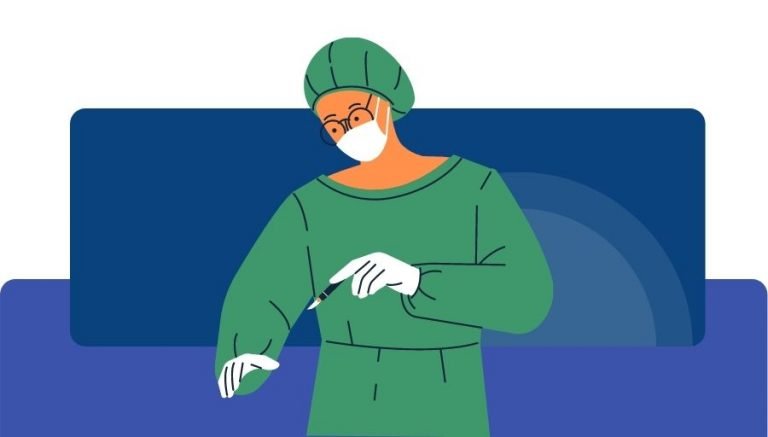Impulse Control Disorders – Definitions & ICD 11 Codes
Definition of Impulse Control Disorders: Impulse control disorders are characterised by the repeated failure to resist an impulse, drive, or urge to perform an act that is rewarding to the person, at least in the short-term, despite consequences such as longer-term harm either to the individual or to others, marked distress about the behaviour pattern, or significant impairment in personal, family, social, educational, occupational, or other important areas of functioning. Impulse Control Disorders involve a range of specific behaviours, including fire-setting, stealing, sexual behaviour, and explosive outbursts.
Coded Elsewhere:
- Substance-induced impulse control disorders
- Gambling disorder (6C50)
- Gaming disorder (6C51)
- Secondary impulse control syndrome (6E66)
- Body-focused repetitive behaviour disorders (6B25)
Pyromania
Definition of Pyromania: Pyromania is characterised by a recurrent failure to control strong impulses to set fires, resulting in multiple acts of, or attempts at, setting fire to property or other objects, in the absence of an apparent motive (e.g., monetary gain, revenge, sabotage, political statement, attracting attention or recognition). There is an increasing sense of tension or affective arousal prior to instances of fire setting, persistent fascination or preoccupation with fire and related stimuli (e.g., watching fires, building fires, fascination with firefighting equipment), and a sense of pleasure, excitement, relief or gratification during, and immediately after the act of setting the fire, witnessing its effects, or participating in its aftermath. The behaviour is not better explained by intellectual impairment, another mental and behavioural disorder, or substance intoxication.
ICD 11 Code For Pyromania
6C70 Pyromania
Inclusions:
- pathological fire-setting
Exclusions:
- Conduct-dissocial disorder (6C91)
- Bipolar type I disorder (6A60)
- Schizophrenia or other primary psychotic disorders
- Fire-setting as the reason for observation for suspected mental or behavioural disorders, ruled out (QA02.3)
Kleptomania
Definition of Kleptomania: Kleptomania is characterised by a recurrent failure to control strong impulses to steal objects in the absence of an apparent motive (e.g., objects are not acquired for personal use or monetary gain). There is an increasing sense of tension or affective arousal before instances of theft and a sense of pleasure, excitement, relief, or gratification during and immediately after the act of stealing. The behaviour is not better explained by intellectual impairment, another mental and behavioural disorder, or substance intoxication.
ICD 11 Code For Kleptomania
6C71 Kleptomania
Coding Note:
- If stealing occurs within the context of conduct-dissocial disorder or a manic episode, Kleptomania should not be diagnosed separately.
Inclusions:
- pathological stealing
Exclusions:
- shoplifting as the reason for observation for suspected mental disorder, ruled out (QA02.3)
Compulsive sexual behaviour disorder
Definition of Compulsive sexual behaviour disorder: Compulsive sexual behaviour disorder is characterised by a persistent pattern of failure to control intense, repetitive sexual impulses or urges resulting in repetitive sexual behaviour. Symptoms may include repetitive sexual activities becoming a central focus of the person’s life to the point of neglecting health and personal care or other interests, activities and responsibilities; numerous unsuccessful efforts to significantly reduce repetitive sexual behaviour; and continued repetitive sexual behaviour despite adverse consequences or deriving little or no satisfaction from it. The pattern of failure to control intense, sexual impulses or urges and resulting repetitive sexual behaviour is manifested over an extended period of time (e.g., 6 months or more), and causes marked distress or significant impairment in personal, family, social, educational, occupational, or other important areas of functioning. Distress that is entirely related to moral judgments and disapproval about sexual impulses, urges, or behaviours is not sufficient to meet this requirement.
ICD 11 Code For Compulsive sexual behaviour disorder
6C72 Compulsive sexual behaviour disorder
Exclusions:
- Paraphilic disorders
Intermittent explosive disorder
Definition of Intermittent explosive disorder: Intermittent explosive disorder is characterised by repeated brief episodes of verbal or physical aggression or destruction of property that represent a failure to control aggressive impulses, with the intensity of the outburst or degree of aggressiveness being grossly out of proportion to the provocation or precipitating psychosocial stressors. The symptoms are not better explained by another mental, behavioural, or neurodevelopmental disorder and are not part of a pattern of chronic anger and irritability (e.g., in oppositional defiant disorder). The behaviour pattern is of sufficient severity to result in significant impairment in personal, family, social, educational, occupational or other important areas of functioning.
ICD 11 Code For Intermittent explosive disorder
6C73 Intermittent explosive disorder
Exclusions:
- Oppositional defiant disorder (6C90)
Other specified impulse control disorders
ICD 11 Code For Other specified impulse control disorders
6C7Y Other specified impulse control disorders
Impulse control disorders unspecified
ICD 11 Code For Impulse control disorders unspecified
6C7Z Impulse control disorders unspecified







